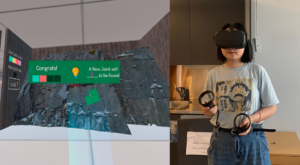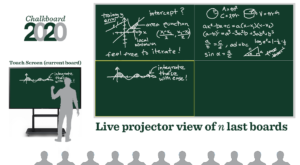Overview
This pilot aims to develop a cloud-based online platform of the Aalto Factory of the Future facility. This platform will house the virtual (digital) copy of the facility, which include both the associated control software that control the machines and the digital version (animatable 3D model) of the machines.
The platform will enable teachers and students to run the control software of the machines without the need to be familiar with the real machines. For students working on projects, they can start to focus on the main tasks of innovation and development immediately, which otherwise would have been delayed when technical issues are encountered in operating the machines.
The online platform will allow results from activities in the facility to be used by teachers and students on other courses without the hassle of having to be in the physical space and also any prerequisites of laboratory safety and the know how of using the equipments.
The future opportunities that come with having this cloud-based platform are seamless, especially those which would be very challenging or close to impossible due to geographical vicinity, physical presence, and technical or knowledge prerequisites required for operating the machines.
With this online platform, students and teachers could run the control software on the cloud, where they can also see how the virtual copy of the machines and robots in the facility will behave. The students and teachers could “play” with the control software, try, make modifications, and deploy the control software to the cloud to see the results. The results developed from the work done in the facility would be usable in other courses. The students in other courses can get new learning experience on state of the art technologies used in the facility and also industrial case examples derived from the facility. The possibility to deploy and run software control and observe the behaviors from the virtual copy will foster interactive learning experience between students or teachers and the facility, without the need of physical presence in the space and extensive technical hands-on to operate the equipments.
Platforms and tools
The pilot investigates several software tools to develop the virtual learning environment, from Python, ROS Gazebo, and Visual Components. There are associated software libraries to allow communication with the virtual simulation environment, namely REST and OPC UA.
Pedagogical methods
The virtual simulation is used to enabled new assignments and new ways for students to test their software developed during the courses, so it can be used in face to face, blended, and even fully online courses.
Involved courses
ELEC – E8102 – Distributed and Intelligent Automation Systems (5 ECTS)
ELEC – E8004 – Project Work (10 ECTS)
Links & Materials
Some results which have been produced and archived during the project can be found in the following repositories. More will be provided once they are available :
https://github.com/blasty3/mir_robot_aole
https://github.com/blasty3/EnAS_Sim_Pilot_v1
People
Udayanto Dwi Atmojo
School of Electrical Engineering, Department of Electrical Engineering and Automation
Pilot leader
Valeriy Vyatkin
School of Electrical Engineering, Department of Electrical Engineering and Automation
Member, advisor
Jan Olaf Blech
School of Electrical Engineering, Department of Electrical Engineering and Automation
Member, advisor
Duc Pham Minh
School of Electrical Engineering, Department of Electrical Engineering and Automation
Contributor
Kazmi Syed
School of Electrical Engineering, Department of Electrical Engineering and Automation
Contributor
Ivan Kolodko
School of Electrical Engineering, Department of Electrical Engineering and Automation
Contributor






